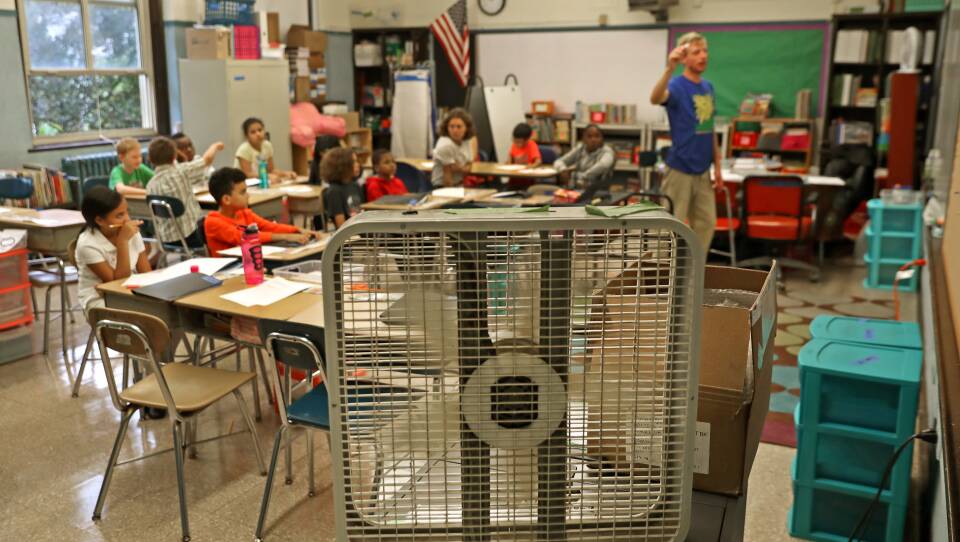After a summer of deadly wildfires, heatwaves and storms, it’s clear that some effects of climate change are already being felt across the United States. What’s unclear is whether leaders are taking action to meet emissions goals and address current impacts. That’s the concern of thousands who are rallying at NYC’s Climate Week this week.
But instead of doom and gloom, federal officials told Boston Public Radio that there’s also a reason to celebrate.
“We're celebrating that we're taking action. We're finally taking action to address the floods that hit New England and many parts of the country and world,” said David Cash, the administrator of the New England Region for the Environmental Protection Agency. “We're finally taking action to reduce emissions of climate-causing gases.”
He gave a recent example of 25 new electric school buses hitting the roads in West Springfield, which has some of the highest asthma rates in the state.
“What this means is that parents can stand on the corner with their kids and not worry that the kids are breathing in these horrible fumes,” Cash said. “And the funds are going preferentially to these communities that have had the most burdens of local air pollution.”
That and other local efforts are part of the Justice40 Initiative , which is why about $27 billion of the Inflation Reduction Act is going to low-income and environmental justice communities. The Justice40 Initiative's goal is to dedicate at least 40% of certain federal investments related to climate change, clean energy, transit and affordable and sustainable housing toward communities that have been overburdened and disadvantaged by pollution.
“We're laser-focused every day on the climate questions and the impacts of climate change on the most vulnerable,” said Shalanda Baker, the director of the Office of Economic Impact and Diversity at the U.S. Department of Energy. This includes energy rebates for people to buy energy-saving appliances, investing in battery production, and investments in electric vehicles.
“When we think about the energy transition, this is where we're going to fight our next civil rights battle,” said Baker.
“When we think about the energy transition, this is where we're going to fight our next civil rights battle.”Shalanda Baker, director of the Office of Economic Impact and Diversity at the U.S. Department of Energy
Energy justice means addressing systemic issues related to energy production and consumption. Baker explained that energy justice means students in a classroom in Dorchester or Mattapan can sit in air conditioning during a heat wave; and a family doesn’t have to choose between keeping the heat, lights or AC on and feeding their family.
Environmental justice means investing in communities that have been harmed by development, like oil refineries and other polluting industries, and unequal enforcement of environmental policies.
Environmental justice is close to Baker’s life. Her father grew up in Port Arthur, Texas, along the fence line of the Texaco Motiva oil refinery. Several of her family members died young: her father died in his early 50s, her grandmother died at the age of 34, and her uncle died at 38.
“My family tree is littered with the evidence of the energy injustices and environmental injustices that are part of being an American in this country,” Baker said.
The investments and tax incentives of the Inflation Reduction Act make a strong economic case for traditional energy industries to be a part of the clean energy transition, Baker said. And it goes beyond political lines.
“We know that there are Republicans that believe in climate change,” she said, pushing back against the idea that climate denialism is rampant in the U.S.
”I can guarantee you that when folks were bobbing around in the ocean during the devastating wildfires in Maui, no one was asking, ‘Are you Republican? Are you a Democrat?’ They were saying, ‘How can we help?’ Because we are all on the same life raft trying to survive this moment,” Baker said.





